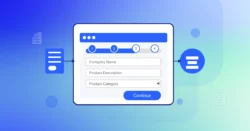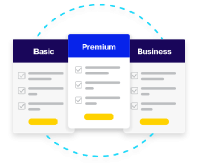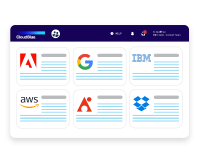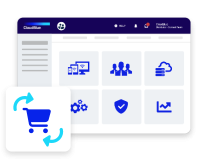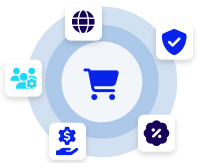Integration Platform as a Service (IPaaS) is a cloud-based solution designed to connect different software applications, services, and systems seamlessly across an organization’s IT ecosystem.
Using IPaaS, businesses can integrate diverse data sources, applications, and workflows across both on-premises and cloud environments, streamlining how they share information. Essentially, IPaaS provides a unified platform for integration, making it easier for companies to manage connections between multiple applications without extensive coding or manual setups.
With IPaaS, businesses can use pre-built connectors and customizable integration tools, which help to reduce development time and avoid the complexities of traditional integration methods.
IPaaS makes it easy to integrate everything from SaaS applications to on-premises databases, opening up powerful possibilities for companies to create more efficient, interconnected workflows.
Key Features and Use Cases for IPaaS
IPaaS solutions typically come with pre-configured connectors for popular applications, like Salesforce, Slack, and ERP systems, along with options to customize connectors based on business needs. This makes IPaaS extremely versatile, supporting a variety of use cases across industries.
For example, in e-commerce, IPaaS enables real-time integration between inventory management software and online storefronts, keeping stock levels updated and automating order processing. In healthcare, IPaaS can integrate patient data systems, allowing medical professionals to access comprehensive patient records instantly and improving patient care.
Another major use case is in customer relationship management (CRM), where IPaaS helps integrate CRM software with marketing and sales applications to create a holistic view of customer interactions.
This allows businesses to enhance customer experiences and drive sales, as insights are pulled from multiple systems into one interface. With the ability to integrate a wide range of applications and data sources, IPaaS solutions are useful across industries like finance, manufacturing, retail, and more.
How IPaaS Fits into Modern Cloud Architecture
IPaaS platforms offer a cloud-based architecture that can be visualized through integration diagrams showing connections between applications and data sources. With cloud-native architecture, IPaaS solutions offer high flexibility and scalability, enabling businesses to adjust integrations as their needs evolve.
Many IPaaS vendors and providers also include monitoring, data transformation, and security features, so companies can track and control data flow across applications securely and reliably.
As more organizations adopt cloud and hybrid architectures, IPaaS plays a central role in facilitating these transitions by providing reliable, easy-to-manage integrations. By utilizing IPaaS, companies are better equipped to handle complex IT landscapes and respond to changing demands, leveraging data from diverse sources without significant infrastructure changes.




